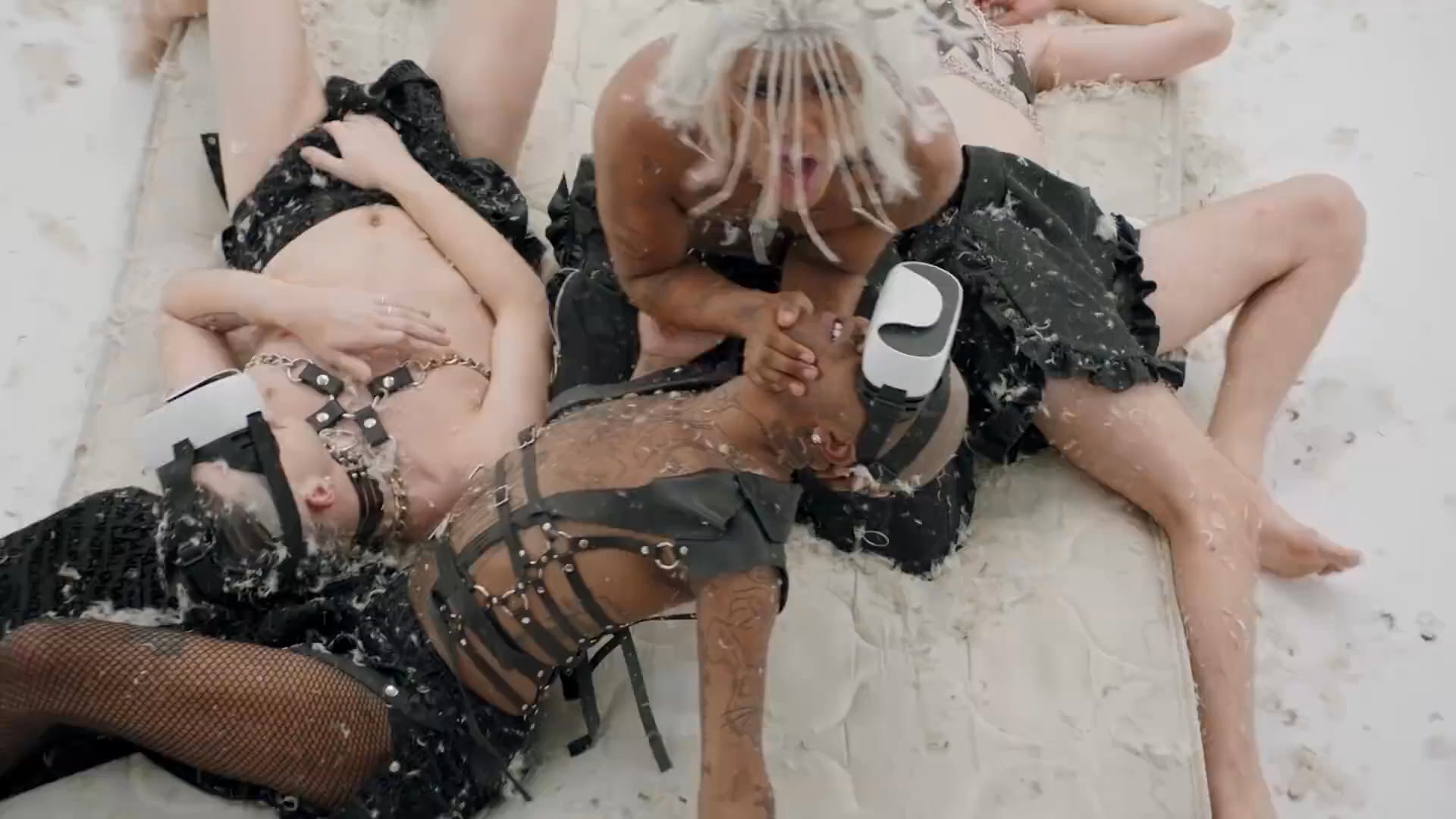
It's odd to think that Mykki Blanco has only just now released a debut album. The rapper and performance artist has been a mainstay of New York’s underground scene for over half a decade, yet it has taken Blanco (alias Michael David Quattlebaum Jr.) the full extent of that time to find a label willing to take a risk on an artist who blends genre, gender and classification of any kind with such a profound lack of compromise.
But, after a tumultuous time that saw Blanco nearly leave music entirely for a career in journalism in Nepal, a label was found, and Mykki was released unto the world in September. The most concise answer for the delay is one that Blanco told me shortly after his soundcheck at the Berlin stop of his current tour: “It sucks, but the world doesn’t accept mixtape culture, it just doesn’t.”
Mykki
Through a series of mixtapes and EPs released independently, Blanco was able to find a niche entirely his own in the burgeoning culture of "queer rap." And while his art and aesthetic were inherently queer, it was not a label that Blanco attempted to conform to.
“When I started, I wanted to make a feminist queer grunge hip-hop mixtape,” he says, the laundry list of references practically flying out of his mouth. “But all of those words I just said have nothing to do with me. They might be things I’m interested in, or aspects of my personality, or politics I believe in. But those aren’t me me.”
Which is where his self-titled debut comes in. Both lyrically and musically, Mykki is a far more inviting prospect than some of his earlier, more razor-edged work. While some of this change is due to collaborations with producers like Woodkid, the bulk is due to a self-imposed shift in perspective.
“I wanted to make that link that all good artists make where they finally let their fans in and see who they really are. It was a cohesive choice to have Mykki be about me. For someone as vibrant and colorful as Blanco this decision seems a natural one, but he admits that “it was awkward at first.”
While this means that writing open-hearted love songs proved challenging (or, as Blanco put it, “corny and emo”), a deeper challenge was showing the sides of Mykki to the world that may not have always been on full display, if at all. In our interview, he memorably described this aspect of his life as “the shadow life,” a space that is inhabited by many members of the LGBT community in what he calls the “queer dark world.”
The Shadow Life
For instance, one of the defining moments of his career in the past several years was his decision to come out as HIV positive. He remains one of the only prominent figures in the music world to make this distinction public.
He has also been as forthright with his substance use, a lifestyle choice that is disproportionately higher in the LGBT world, and one that can easily lend itself to abuse. “At one point, it was not cute,” he says in reference to his past experiences. “It manifested into a culture of secrets, shame and hiding. No good stuff comes out of any that.”
The Debut Album
But it is precisely this openness in his life and in his art that have allowed both to flourish. “I think by being open about it, other people can relate, and I don’t feel ashamed. I don’t know if I can articulate what everyone’s path to healing should be, but I know that I actively work at mine.”
And, if Mykki is anything to go by, this work has paid off in his most concise, accessible and selfless creation yet.
Mykki Blanco's debut album Mykki is out now. Stream it below via Spotify:
To see Mykki's performance as part of our COLORS Berlin series, click right here.